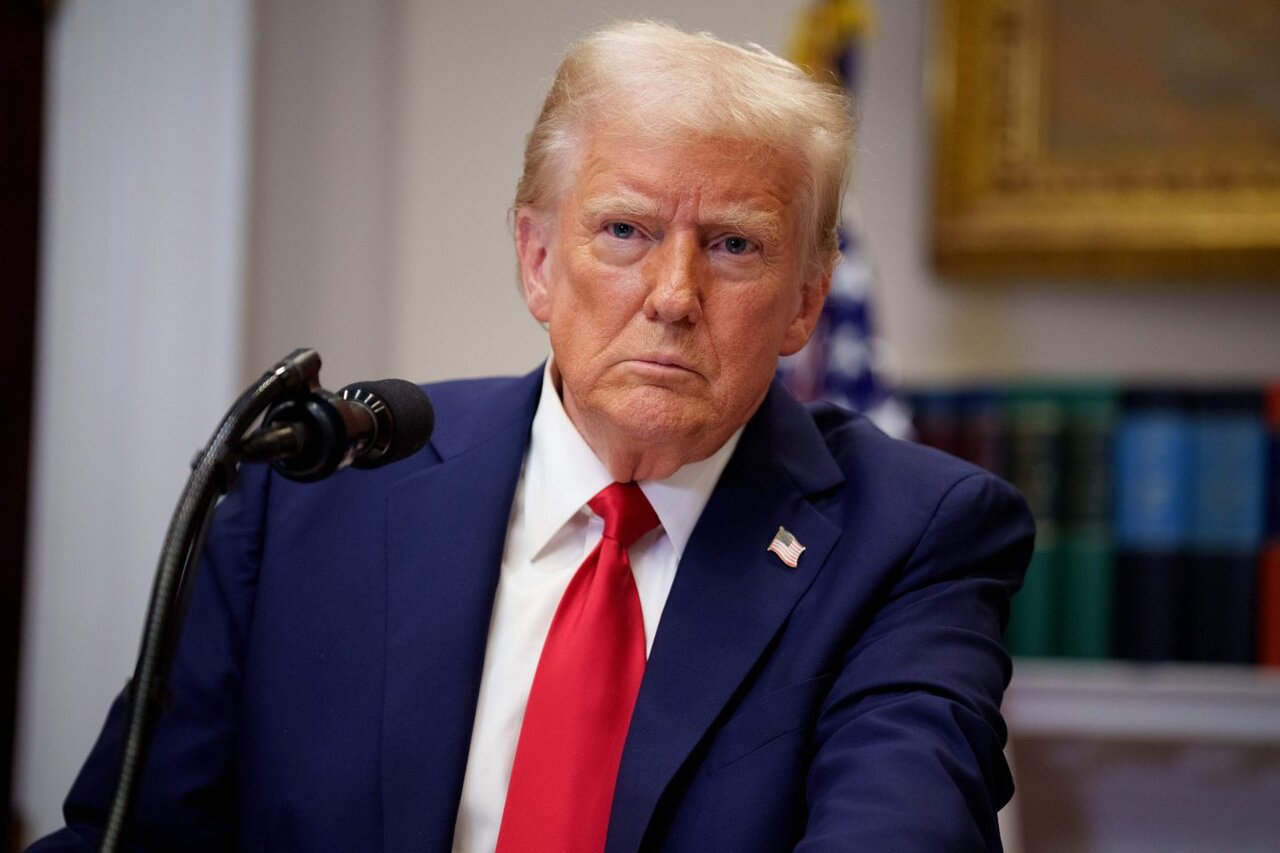Fractured alliances: Trump's divided coalition on Iran

TEHRAN – Since Donald Trump took office as the 47th U.S. president, the supposed unity that once characterized his support base against the Democratic Party has begun to fracture, revealing deep-seated divisions over the country’s foreign policy, particularly concerning Iran.
The Trump administration, now navigating its second term, faces a pivotal moment where past policies and new appointments could either mend or widen these rifts.
The recent act of U.S.-Iran relations under Trump has been shaped by the 2015 Joint Comprehensive Plan of Action (JCPOA), from which Trump, under the enormous influence of the Israel Lobby, withdrew in 2018, reinstating harsh sanctions against Iran and waging economic warfare against its population.
This move set the stage for a policy of "maximum pressure" that supposedly aimed to curb Iran's civilian nuclear program and regional influence.
In a separate series of actions, the Trump administration designated the Islamic Revolution Guard Corps (IRGC) as a foreign terrorist organization and, in early 2020, assassinated General Qassem Soleimani, a highly venerated Iranian military leader who was in Iraq on a peace mission.
Following the assassination of General Soleimani, Iran retaliated by launching missile strikes on American military bases in Iraq. These attacks, representing the first direct offensive against a U.S. base since World War II, caused several American service members to become “brain-dead”, according to U.S. media reports.
Even though some may have perceived it as a monolith, the Trump coalition now delineates into two contrasting factions:
Group A: The Extremist Zionists and War Hawks
This faction, comprising figures like Marco Rubio, Pete Hegseth, Mike Waltz, Michael Huckabee, and Miriam Adelson, fervently promotes a belligerent U.S. presence in West Asia, with a narrow-minded focus on propping up the Israeli regime at any cost.
Their stance on Iran is rooted in hostility and escalatory measures, pushing for aggressive military strategies or crippling economic sanctions to eliminate what they claim to perceive as a dire threat to Israel’s colonialism and supposed regional order.
Group B: The “America First” Advocates
In stark contrast, this faction, led by personalities like JD Vance, Elbridge Colby, Mike DiMino, Tucker Carlson, Thomas Massie, and Rand Paul, prioritizes domestic issues and strategic competition with China over entanglements in West Asia.
They argue for a policy that minimizes U.S. military involvement in West Asia, focusing instead on strengthening America's borders, economy, and regional influence in the Americas.
The appointment of DiMino for deputy assistant secretary of defense for the Middle East [West Asia], with his background of realistically advocating for restraint with Iran, and Colby's skepticism towards military action against Tehran, signals a shift towards a more diplomatic or at least less confrontational approach.
Recent developments and signs regarding Trump's Iran policy, reflect the influence of both groups, as well as his instinct and initiation:
Trump's recent comments on possibly negotiating a deal with Iran, while not endorsing direct talks, suggest a willingness to explore diplomatic avenues.
This is further underscored by the role of Steve Witkoff, who, after his alleged role in pushing Israel to accept the ceasefire in Gaza, is now tasked with managing Iran diplomacy, according to the Financial Times.
Trump was asked during an Oval Office event whether he would pick Witkoff for the role, and whether he'd ask Witkoff to speak directly to the Iranians.
He said "no," seemingly to the latter question about direct talks, while adding that Witkoff was "certainly someone I would use" and strongly praising his work on Gaza.
However, the inclusion of Rubio, Waltz, and other war hawks in Trump's administration may dangerously sway him towards belligerent actions against Iran, pushing for extreme "maximum pressure" tactics and even military strikes, thereby escalating tensions to a perilous level.
Some may interpret the revocation of security details for Iran hawks like Mike Pompeo, Brian Hook, and John Bolton as a move away from the "maximum pressure" campaign. However, this could also be seen as a reaction to personal or loyalty issues rather than a definitive policy shift.
'Hawks are louder, but end goals are the same'
To help explain this perceived dichotomy in the Trump Administration, the Tehran Times spoke to Mohammed Mehdi Abbasi, an expert on U.S. affairs.
Abbasi noted that “Witkoff and others who support diplomacy, as well as pressure from Trump himself, were instrumental in reaching the recent ceasefire in Gaza, despite opposition from individuals warmongers like Rubio and Waltz.”
The expert also highlighted that the Gaza ceasefire was seen as a major victory for Hamas and a setback for the Israeli regime.
"Tweets from figures like Tom Cotton and Nikki Haley, as well as other war hawks, suggested that they were displeased with the Gaza ceasefire, viewing it as a defeat for Israel. The first serious disagreement between these two factions was over Gaza, and the second issue, which has recently become prominent, is Iran."
"However, it should be noted that individuals from Group B, like Elbridge Colby, are not necessarily opposed to maximum pressure or even military options against Iran," Abbasi added.
He argues that they may initially seek diplomacy, but if it fails, they will resort to maximum pressure and possibly military options, as they too seek to render Iran powerless.
"We are facing one of the most anti-Iranian and extremist cabinets in U.S. history. It seems like 80% of the cabinet is from Israel's Likud party rather than the Republican Party," Abbasi emphasized.
He added that "in such an environment, individuals from Group B, assuming they genuinely support diplomacy with Iran, will face many challenges and obstruction from figures like Rubio, Hegseth, Waltz, and even Republican senators like Lindsey Graham and Ted Cruz from Group A."
He concluded that Trump might say today, "I just want Iran not to be nuclear," but some of his cabinet members and other key figures around him do not agree and are even more confrontational against Iran.
Leave a Comment